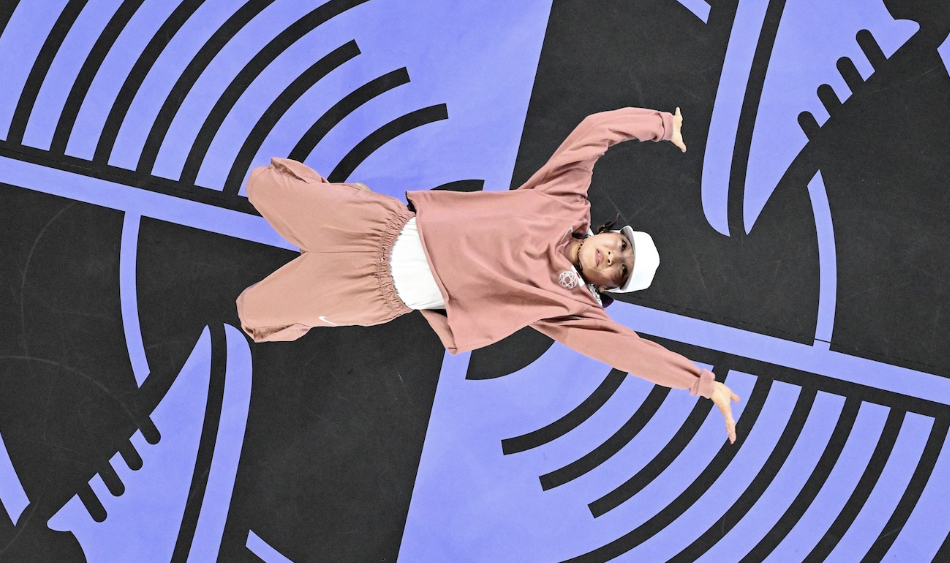CELEBRITY
OLYMPIC BREAKING: Japan’s b-girl Ami Yuasa has won gold at the Olympics’ first breaking event by spinning, flipping and toprocking past a…See more

PARIS — Japan’s b-girl Ami won gold at the Olympics ‘ first breaking event by spinning, flipping and toprocking past a field of 16 dancers Friday in a high-energy competition that may not return for future Games.
 Ami, legally named Ami Yuasa, won all three rounds in a battle against b-girl Nicka (Dominika Banevič) from Lithuania to clinch the gold, wrapping up a long day of breakers putting hip-hop culture on the Olympic stage with their flow, rhythm and skill at Place de la Concorde stadium.
Ami, legally named Ami Yuasa, won all three rounds in a battle against b-girl Nicka (Dominika Banevič) from Lithuania to clinch the gold, wrapping up a long day of breakers putting hip-hop culture on the Olympic stage with their flow, rhythm and skill at Place de la Concorde stadium.
“Breaking is my expression,” Yuasa said. It’s an “expression, an art, but I want to say that breaking also could be part of sports.”
B-girls stunned the crowd with power moves like headspins, windmills and backflips. Fans remained energetic throughout the competition, which began in the afternoon and ended just before 10 p.m.
Beginning in the quarterfinals phase, eight b-girls from the original 17 squared off in knockout battles of three rounds each to narrow down to the finals. Banevič won the silver medal, and China’s b-girl 671 (Liu Qingyi) took the bronze after battling with b-girl India (India Sardjo) from the Netherlands to “Boom!” by The Roots. Liu is a relative newcomer to the breaking scene.
Olympics needed breaking because it’s like a breath of fresh air,” Banevič said. “Such a big amount of people saw breaking for the first time, like it’s huge. And I’m happy that I was able to represent at the highest level of the art form for breaking.”
Both American b-girls were eliminated in the first round, a blow to the country representing the birthplace of hip-hop and breaking culture. B-girl Logistx (legal name Logan Edra) and b-girl Sunny (Sunny Choi) both ranked in the top 12 internationally but came up short of the quarterfinals.
“I feel like I still shined and I feel like I still represented the dance and had some moments,” Logistx said. “It was such a big opportunity, it’s such a big platform, and I’m really happy that we’re here.”
A panel of nine judges, all b-boys and b-girls in their own right from around the world, scored the breakers based on the Trivium judging system: on technique, vocabulary, execution, musicality and originality — each accounts for 20% of the final score.
Each of the b-girls began by catching the beat as they danced while on their feet — a series called “toprocking” — before launching into their footwork moves on the floor.
The soundtrack to their routines was a surprise for each of them, as two DJs spun records on a turntable set up behind the judges.












